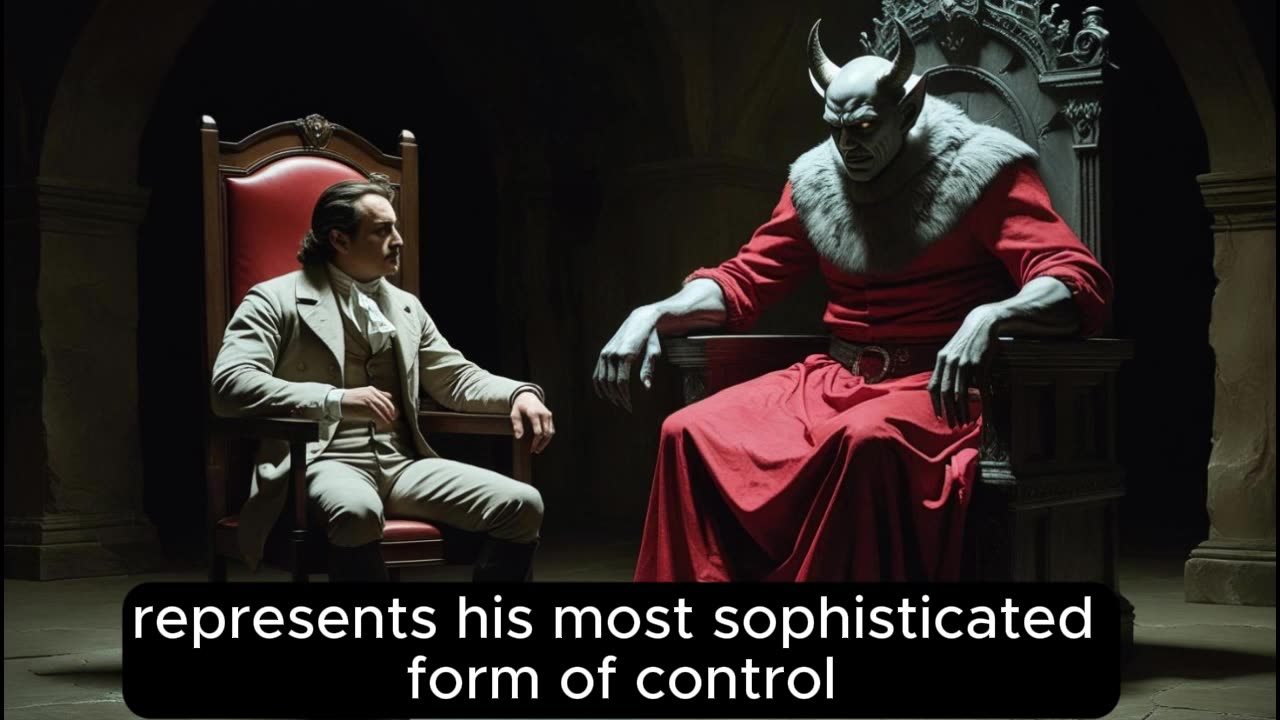Premium Only Content

Outwitting the Devil: Chapter 6 Summary
Outwitting the Devil: Chapter 6 Summary
Chapter 6: Drifting — The Devil’s Cleverest Trick
The Ultimate Psychological Trap
The Devil reveals his masterpiece of manipulation: inducing the habit of drifting. This insidious practice represents his most sophisticated form of control, creating individuals who willingly surrender their mental sovereignty. A drifter becomes someone who permits external circumstances to dictate their thoughts and actions, essentially inviting the Devil to occupy their mind and assume responsibility for their thinking. These mental slaves accept whatever life delivers without resistance, lacking clear desires or definite purpose, while their opinions become puppets of the Devil’s influence through sheer intellectual laziness.
Capturing Minds from the Beginning
The Devil’s most effective strategy involves seizing control during humanity’s most vulnerable phase: youth. His influence often begins before birth itself, working through the manipulation of parents’ minds or exploiting “physical heredity” in the form of weak mental faculties. By establishing this early foothold, he ensures that his victims never develop the mental strength necessary to resist his later advances.
The Architecture of Mental Slavery
The Devil operates on a fundamental principle: the mind consists of nothing more than the accumulated sum of one’s habits. He infiltrates this mental landscape through thoughts that people mistake as their own, skillfully exploiting human weaknesses including fear, superstition, avarice, greed, lust, revenge, anger, vanity, and plain laziness. These emotional vulnerabilities become gateways through which he establishes permanent residence in the human psyche.
Educational Sabotage
One of the Devil’s most systematic approaches involves corrupting the educational process itself. He deliberately causes children to drift through their schooling years “without knowing what occupation they wish to follow in life.” This manufactured aimlessness creates a foundation of purposelessness that extends far beyond academics, setting young people on a trajectory of drifting in all directions throughout their adult lives. By destroying clarity of purpose during these formative years, he ensures a steady supply of directionless minds ripe for his control.
-
 LIVE
LIVE
Badlands Media
17 hours agoAltered State S3 Ep. 44
2,134 watching -
 21:09
21:09
Bearing
13 hours agoAustralian “Racist” Protest EXPLODES 💥 Glowies, Brawls & Media Spin 📣
4.59K20 -
 LIVE
LIVE
Tundra Tactical
1 hour ago $0.41 earnedTwo Vets, One Ouija Board, Zero Good Decisions
80 watching -
 3:49:59
3:49:59
Barry Cunningham
6 hours agoPAM BONDI & KRISTI NOEM HOST A PRESS CONFERENCE AND JOHN RICH JOINS THE SHOW!
27.8K17 -
 LIVE
LIVE
GrimmHollywood
11 hours ago🔴LIVE • GRIMM HOLLYWOOD • RETRO PS2 GAMES • GRIMMDY GAMES • BRRRAP PACK x FINALS RANKED GRIND
132 watching -
 LIVE
LIVE
Cripiechuccles
8 hours ago😁18+💚💙WEEDIE WED WITH CRIPIE💚RUMLUV💙👌SMOKING, GAMING & WATCHING FLICKS!:😁
25 watching -
 1:01:50
1:01:50
BonginoReport
5 hours agoSeason 2 Of The Epstein Show Just Dropped - Nightly Scroll w/ Hayley Caronia (Ep.126) - 09/03/2025
91.5K34 -
 LIVE
LIVE
Spartan
5 hours agoScrims then Ranked and/or E33 (New Game+ / All Enemies 10x Health)
43 watching -
 1:01:42
1:01:42
The Nick DiPaolo Show Channel
6 hours agoUS Vaporizes Venezuelan Drug Boat | The Nick Di Paolo Show #1787
69.9K36 -
 LIVE
LIVE
LFA TV
15 hours agoLFA TV ALL DAY STREAM - WEDNESDAY 9/3/25
638 watching